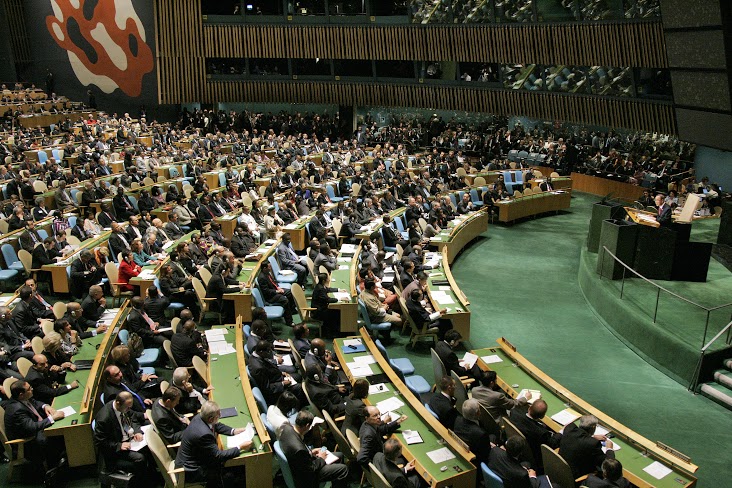(This is section 15 of the World Beyond War white paper A Global Security System: An Alternative to War. Continue to preceding | following section.)

Evidence from archeology and anthropology now indicate that warfare was a social invention about 6,000 years ago with the rise of the centralized state, slavery and patriarchy. We learned to do war. But for over a hundred thousand years prior, humans lived without large-scale violence. The War System has dominated human societies since about 4,000 B.C. But beginning in 1816 with the creation of the first citizen-based organizations working to end war, a string of revolutionary developments has occurred. We are not starting from scratch. While the twentieth century was the bloodiest on record, it will surprise most people that it was also a time of great progress in the development of the structures, values, and techniques that will, with further development pushed by nonviolent people power, become an Alternative Global Security System. These are revolutionary developments unprecedented in the thousands of years in which the War System was the only means of conflict management. Today a competing system exists—embryonic, perhaps, but developing. Peace is real.
“Whatever exists is possible.”
Kenneth Boulding (Peace Educator)
By the mid-nineteenth century the desire for international peace was developing rapidly. As a result, in 1899, for the first time in history, an institution was created to deal with global-level conflict. Popularly known as the World Court, the International Court of Justice exists to adjudicate interstate conflict. Other institutions followed rapidly including the first effort at a world parliament to deal with interstate conflict, the League of Nations. In 1945 the UN was founded, and in 1948 the Universal Declaration of Human Rights was signed. In the 1960s two nuclear weapons treaties were signed – the Partial Test Ban Treaty in 1963 and the Nuclear Non-Proliferation Treaty which was opened for signature in 1968 and went into force in 1970. More recently, the Comprehensive Test Ban Treaty in 1996, and the landmines treaty (Antipersonnel Landmines Convention) was adopted in 1997. The landmine treaty was negotiated through unprecedented successful citizen-diplomacy in the so-called “Ottawa Process” where NGOs together with governments negotiated and drafted the treaty for others to sign and ratify. The Nobel Committee recognized the efforts by International Campaign to Ban Landmines (ICBL) as a “convincing example of an effective policy for peace” and awarded the Nobel Peace Prize to ICBL and its coordinator Jody Williams.note4
The International Criminal Court was established in 1998. Laws against the use of child soldiers have been agreed on in recent decades.
(Continue to preceding | following section.)
We want to hear from you! (Please share comments below)
How has this led you to think differently about alternatives to war?
What would you add, or change, or question about this?
What can you do to help more people understand about these alternatives to war?
How can you take action to make this alternative to war a reality?
Please share this material widely!
Related posts
See other posts related to “Why we Think a Peace System is Possible”
See full table of contents for A Global Security System: An Alternative to War
Notes:
4. See more on the ICBL and citizen diplomacy in Banning Landmines: Disarmament, Citizen Diplomacy, and Human Security (2008) by Jody Williams, Stephen Goose, and Mary Wareham. (return to main article)








